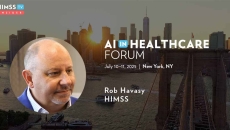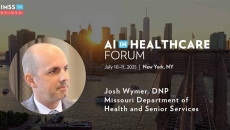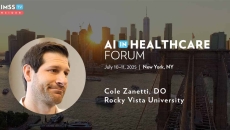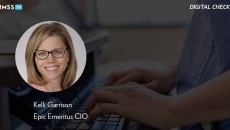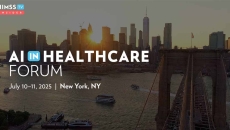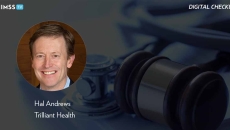Strategic Planning
Challenges such as workforce shortages that are not getting any better and tight funding are driving the healthcare industry toward AI deployment, says Rob Havasy, HIMSS senior director of informatics strategy.
Clinicians need to have integrity with how they present AI tools to their teams, focusing on how those tools can solve problems, says Josh Wymer, chief health information and data strategy officer at the Missouri Department of Health and Senior Services.
The struggle is that "you can't just plop something in the middle of a system even though it has good effectiveness and expect people to change their behavior or trust it," says Dr. Cole Zanetti at Rocky Vista University College of Osteopathic Medicine.
During an EHR transition, it is essential to keep the patient at the center of the transition, ensuring collaboration with clinicians and patients is done early, says Epic Emeritus CIO Kelli Garrison, founder and CEO of Verdant Consulting.
Event attendees explored the challenges and benefits of AI while learning about governance, leadership strategy, workforce challenges, transparency, patient safety and data security at the gathering in Brooklyn, New York.
Hippocratic’s generative AI agents will be used to free up providers so they can focus on their patients.
HIMSS25
With healthcare spending, particularly for Medicare Advantage, under scrutiny, 1upHealth's Dr. Don Rucker says AI-ready, open API platforms that can integrate and analyze disparate data are needed to inform care and control costs.
In response to a new price cap law in Indiana, Hal Andrews, CEO of Trilliant Health, says once a state legislature is allowed to determine maximum reimbursement, hospitals are subject to that being changed any time the legislature gets together.
HIMSS25
Edward Marx, CEO of Marx Advisory, recommends that healthcare leaders looking to drive innovation in their organizations become innovative themselves by bringing their C-suite to meet with and learn from partners.
HIMSS25
Regina Wysocki, senior informatics program manager at Lone Star Communications, says centralizing health system data provides nurses with a "bigger picture" of operations so they can uncover trends that can improve care delivery.
